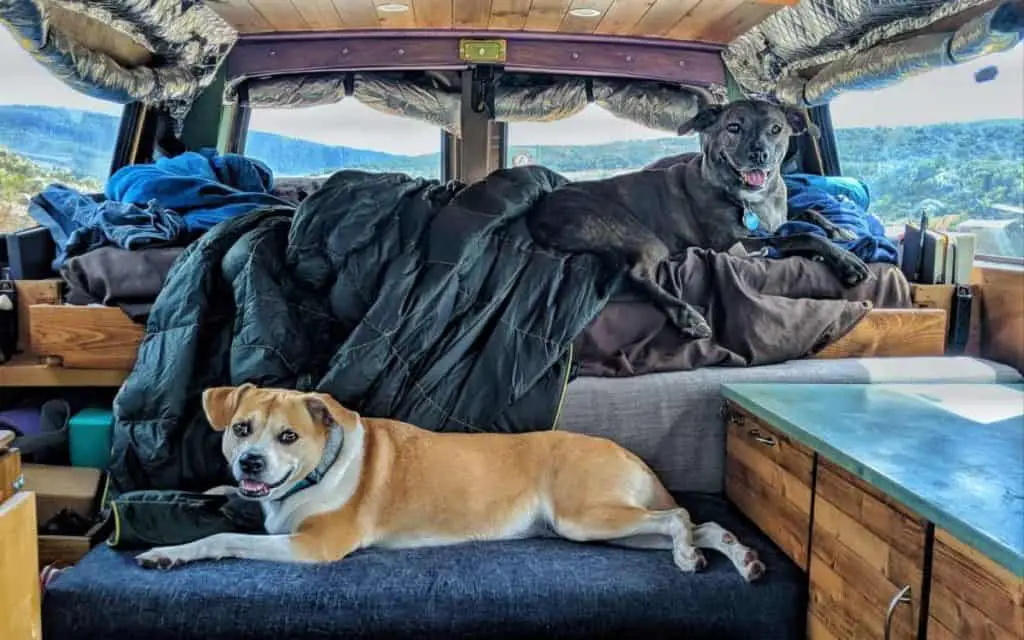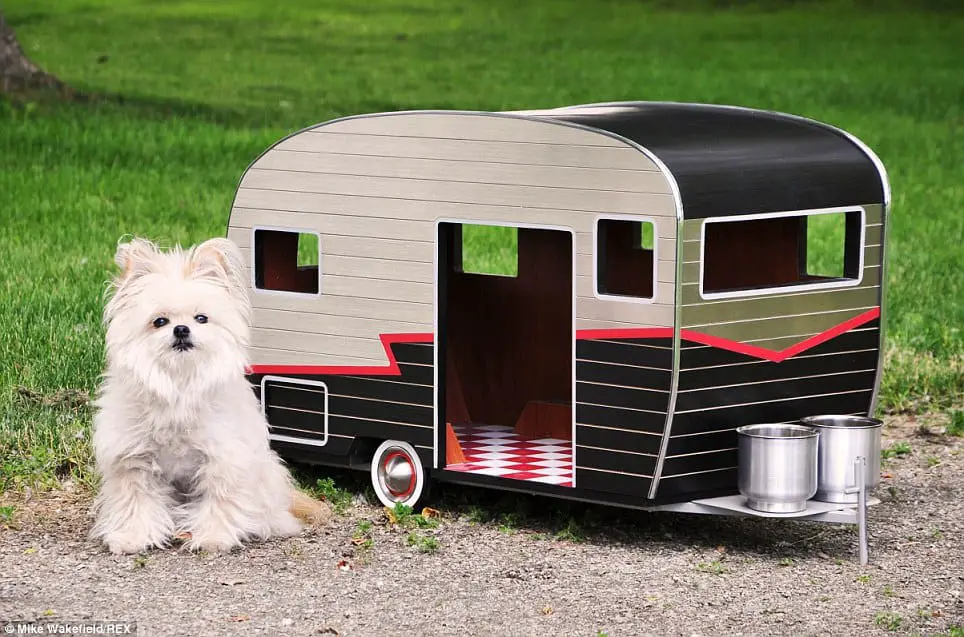With the increasing popularity of digital nomadism and remote work, the ability to live, travel, and work from a van has become a reality for many. And what better company for daily adventures than a beloved pet? If you’re thinking of bringing a pet into your life on the road, certainly you want to make a good choice and choose a pet that will love van life as much as you do.
The best pet for van life is one that can comfortably enjoy its home environment and adjust to the adventurous life on the road. There are a lot of different ways of van living, and it is best to choose a pet that corresponds with your level of energy, adventure, and availability to care for it.
Let’s take a closer look at the most popular types of pets for van dwellers and the right circumstances for each kind of animal. From understanding what each animal will need from its human companion, you will be able to understand the best pet for your van life better.

For All Pets: The Right Circumstances
Before thinking about the animal you want, be sure to reflect first on your own circumstances. The biggest issue for pets in vans is temperature control. If you are not working remotely and need to leave your pet unattended for several hours each day, sadly, there is no ideal pet for you. All animals can be in danger from dogs to birds to rats if left unattended in a hot van.
If you live in a van while living a more traditional city life, consider taking steps to begin some remote work to make your lifestyle more compatible with van pet ownership.
Dogs: The Never-Ending Van Adventure
Dogs are the most popular choice for van pets. For van dwellers that can work anywhere, they will often find themselves in picturesque parts of the country with plenty of opportunity for outdoor activities that their dogs love.
If you are active by hiking, mountain biking, and camping, your life will be a never-ending adventure for a dog. With the daily opportunity to run in nature, dogs easily adapt to van life and the plentiful exercise and stimulation that comes with it.
What Is the Best Size?

If you fit into this high-energy, outdoorsy type of van dweller, a young, medium-sized dog is a great choice for you. Their high energy levels will be rewarded by their daily adventures. Keep in mind that you don’t want a breed that is too big since it must comfortably reside in the van with you.
It’s not just the size of the actual dog to consider either– think of the food and water your new furry friend will consume. As a van dweller, you will always have one eye on your water supply as well as storage space inside the van. The larger the size dog, the more food you will need to store, and the more water you will need to provide.
If you are not as active or are worried about space, consider a smaller dog breed. They need less exercise to stay healthy and content. They can happily hang out with you as you work from the van and will enjoy all the calmer walks and small adventures you can provide.
 Pros of Van Life With a Dog
Pros of Van Life With a Dog
The pros of having a van dog are plentiful. First, it’s no secret the love and joy that dogs bring into our lives. Whether you are a solo traveler or with a partner, a dog can be a wonderful travel companion who is always up for an adventure.
Regardless of the size, there are many advantages your dog will bring to your lifestyle. They can act as guard dogs and keep you feeling safe and protected. Especially for solo travelers, having a companion on an isolated hike or camping at night can be very valuable.
Dogs need regular bathroom breaks and feeding times. Their needs can help keep you active by getting up in the morning and moving around with them throughout the day. This can also help structure your day, especially if you are a freelance or remote worker and in charge of your own schedule.
Finally, dogs can be a great icebreaker and a way to meet new people for couples or solo travelers. It’s quite possible your dog will run up to strangers much more easily than a human would and create opportunities to meet other travelers. Making new human connections on the road is a great way to enrich the travel experience.
 Cons of Van Life with a Dog
Cons of Van Life with a Dog
Of course, there are things to consider before taking on the responsibility of dog ownership.
First, having a dog in a van limits the amount of time you can spend away from your van, no matter what. Depending on the climate, it can easily be dangerous to leave your dog inside a hot van unattended. Be sure to make a plan for when you need to go somewhere inside, like for groceries or other essential supplies.
If you are a nature lover, remember that National Parks typically do not allow dogs. This might be a disappointment if many of these parks are on your bucket list.
And remember– the van is small, and dogs get dirty. The dirt and hair that your pup will track in will be your responsibility to clean up. Perhaps that doesn’t bother you at all– in fact, the more dirt on the floor probably means the more fun you had during the day!
Overall, even with a few cons, most dog owners simply cannot imagine van life without their canine companion. If you love dogs, nature and have a flexible work arrangement, a small or medium-sized dog would be a great choice for you.
Related Article: 6 Best Dogs for Van Life
Cats: Enjoyment After Adjustment
Let’s be clear: the adventurous life of van living is not as naturally appealing to cats as it is to dogs. However, there are many people that, with the right circumstances, have let their cat adjust to an unconventional lifestyle and the cats love it in the end.
If you are less active and tend to spend more time around your van or campsite, bringing your cat along might be a good match. However, it is really important to let your cat adjust properly. This type of life will be very different if they have lived in an apartment before. If they are babies, luckily, you will be able to introduce them to the lifestyle early, and they will grow up fully acclimated and enjoying it.
For the other cats, it is important to phase them into this lifestyle. Taking short trips in the van when they can travel in the safety of the kennel is a good start. Slowly, when they seem curious, you can open the kennel and see if they might want to come out while driving. Eventually, they will get used to the motion and will even enjoy choosing their own spot in the van for travel.
For most van cats, they will need a harness and long leash to explore the surroundings without the fear of being lost. This will be another adjustment for most cats. Additionally, remember they will need a litter box inside of the van, and cleaning it daily (maybe twice a day) will be your responsibility to keep the van smelling clean.
So, if you’re a cat person who is responsible and determined to show your cat another lifestyle, it is possible! A quick search on social media will show you many cats that are enjoying their adventurous new lives.
Birds, Rats, and Critters: Other Options
Of course, there is a whole range of animals that people love and choose to bring with them on the road. If your personal preference is one of these other categories, please consider if you will be able to perform adequate temperature control for their environment. It might not be as easy to bring these types of animals with you on adventures away from the van, therefore subjecting them to too much heat.
Final Thoughts
The best pet for van life will very much depend on the interest and lifestyle of the person choosing the pet. Depending on your activity level and interest, you can consider a small or medium-sized dog or even a cat. By knowing yourself and your lifestyle, you will be able to make an informed decision on the best van life pet for you.
